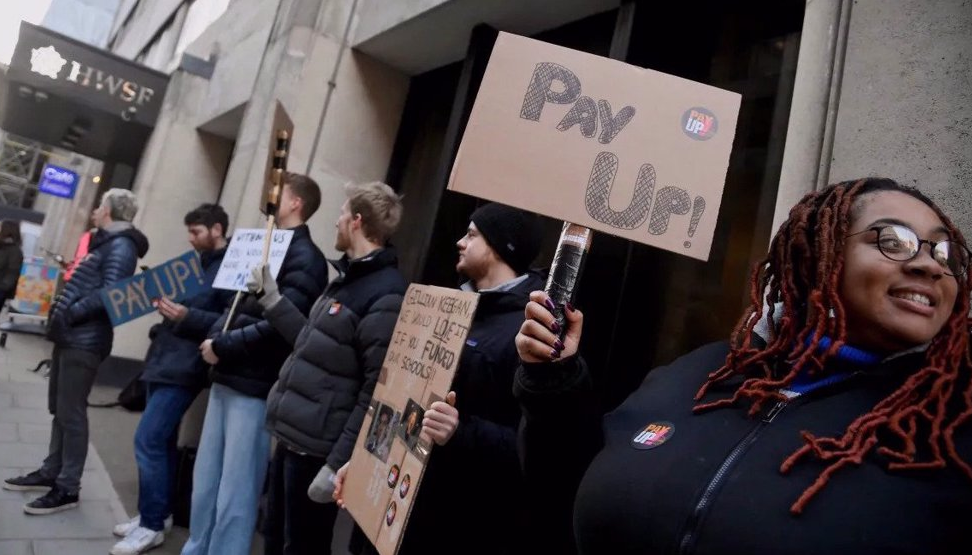
The Trades Union Congress says that when inflation is factored in, the average public sector worker earns 203 pounds ($250) a month less than in 2010. (Photo by Reuters)
London, July 30 (RHC)-- Thousands of Britain's Rail, Maritime and Transport workers' union (RMT) have waged yet another major strike, with commuters facing a new day of train disruption across the UK. About 20,000 employees at 14 major train operators contracted by the Department for Transport began their third 24-hour strike at 9 a.m. Saturday to protest low wages and working conditions.
As strikes continue across the UK rail network, officials have warned passengers to check train schedules before travelling, with some operators urging people to only travel if necessary due to widespread changes to rail services. The strikes also disrupted cross border trains serving Wales and Scotland where staff were not directly involved in the dispute.
In some areas, only about half of the train lines will be in service, while many lines and branch stations will be closed. Long-distance trains departed for the last time earlier in the afternoon, and the schedule is usually reduced to one hour.
Britain has been hit with yet another wave of strikes over wages, job cuts and poor working conditions, with 20,000 rail workers walking out on Thursday. The Rail Delivery Group (RDG), which represents train operators, said passengers should ensure trains are running before travelling. Trains may also be disrupted on Sunday morning due to the strike.
RDG said the strike would affect family holiday plans and put financial pressure on tens of thousands of people, as well as impact businesses. The RMT has blamed the government and companies for failing to negotiate after rejecting the union's below-inflation offer. Unions are also opposed to the planned closure of ticket offices, which is currently the subject of a wide-ranging public consultation, which the RMT has described as a "fig leaf for redundancies".
“We’ve been on strike for over a year. This campaign’s probably been running for two years. The issues are the same. They’re attacking our jobs. They’re making redundancies. They’re closing services. We haven’t had a pay rise for four years and the people that remain, they want to cut our conditions and issue new contracts of employment,” said the union’s general secretary Mick Lynch.
“There is not an agreement in sight at the moment but we remain available for negotiation with the companies and with the government – but that’s up to them to invite us back to the table so that we can work up some solutions to the dispute,” he added.
The strike by railway workers comes as Britain has been hit by similar actions for the past year, with NHS (National Health Service) staff among the main government employees calling for better wages and working conditions.
The most recent was a strike staged by senior doctors on July 20 and 21st. The British Medical Association (BMA) said senior doctors will stage another two day walkout on August 24 and 25th which is expected to put the country's National Health Service under more strain.
The walkout by senior doctors recently came after a five day strike by junior doctors, marks the most protracted strike in NHS history. The back to back walkouts have already taken their toll on the country's health care system, prompting fears for patient safety.
Imploring striking public sector workers to end their industrial action Prime Minister Sunak offered a 6% rise saying that was his last offer and no amount of striking would change his mind. The prime minister stressed that there will be no further negotiations over pay.

